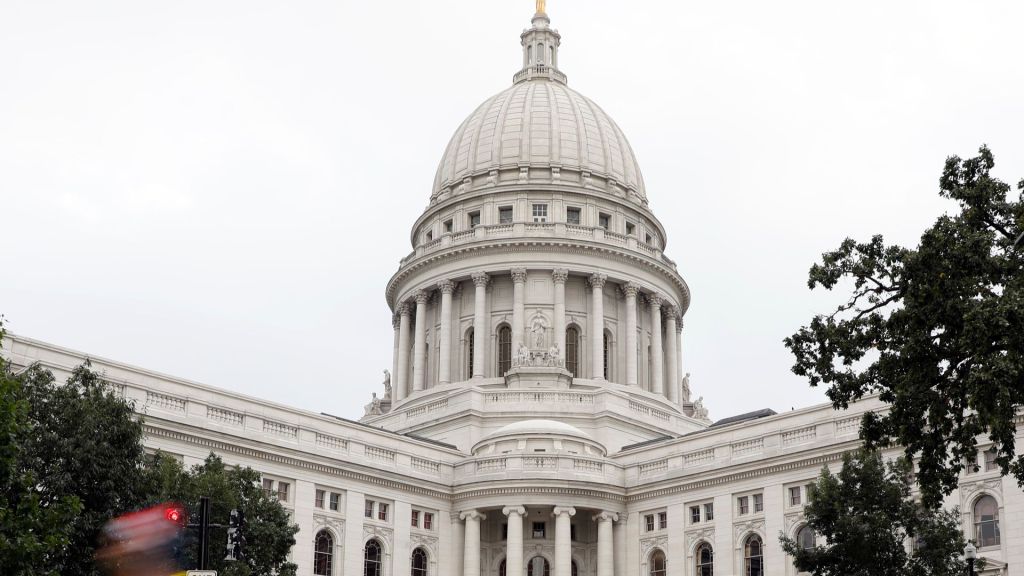Simone Del Rosario: Joe Biden is president for – at the very least – another eight-plus months.
But he has only weeks left to safeguard his key policies and regulations from a potential Donald Trump victory.
Columbia Law Professor Michael Gerrard: The Biden administration is right now trying to rush out in final form all of the regulations that he’s been working on for a couple of years to make sure that they are final before the Congressional Review Act cutoff date.
Simone Del Rosario: The 1996 law allows an incoming president to unravel the previous administration’s recent rules and regulations with support from a simple majority in the House and Senate.
Michael Gerrard: It was adopted during the time when Bill Clinton was president and Newt Gingrich was the Speaker of the House. There were a lot of conflicts, and Congress, the majority in Congress, felt that it should have more ability to control what the administrative state does.
Simone Del Rosario: The rules are obscure, but basically, once a federal agency reports a new rule to Congress, Congress has 60 working days to introduce a joint resolution disapproving of the rule.
The Congressional Review Act essentially gives Congress the opportunity to get on the record, but it rarely makes it to the president’s desk. That’s largely because no sitting president is likely to overturn a rule he or she made.
Which is why the CRA has only ever succeeded when a new president comes in.
Michael Gerrard: It had been considered to be an extraordinary step.
Donald Trump: Before this administration, only one time in our history had a president signed a bill that used the CRA to cancel a federal regulation. So we’re doing a lot of them.
Simone Del Rosario: In 2017, then-President Trump and the Republican-controlled Congress used the CRA to overturn 16 Obama-era rules.
Donald Trump: I will keep working with Congress, with every agency and most important with the American people, until we eliminate every unnecessary, harmful and job killing regulation that we can find. We have a lot more coming (applause)
Simone Del Rosario: And when a president signs a CRA that overturns a rule, it prevents federal agencies from ever issuing a “substantially similar” rule unless specifically authorized by Congress.
After Trump successfully used the CRA 16 times, Biden’s first months in office included three of his own.
Sen. Chuck Schumer: The fact that we have the Congressional Review Act means that we can undo that damage and undo it quickly.
Simone Del Rosario: And now, with Trump back on the ballot, George Washington University research shows the Biden admin is finalizing rules this spring at a pace that far exceeds any other time in his term, to get ahead of that 60-working-day window.
Michael Gerrard: There’s every reason to believe that he would want to revoke as many of the Biden-era regulations as he could, just as in the first term he revoked a lot of the Obama-era regulations.
Simone Del Rosario: Trump’s campaign confirmed as much. Spokesperson Karoline Leavitt said, “When re-elected, President Trump will immediately cut Joe Biden’s burdensome regulations, unleash our domestic energy industry, and implement a pro-worker agenda that will uplift all Americans.”
Michael Gerrard: It’s only in the last couple of decades that we’ve tended to have such radical shifts in federal policy as we go from one party to another.
Simone Del Rosario: And Gerrard says that environment has made the business environment more chaotic.
Michael Gerrard: It’s completely disruptive. Because for one thing, industry needs to know what investments to atmake. They need to know how clean their power plants need to be, what kind of automobiles to make. All across industries, companies rely on predictability for what regulatory schemes will apply.
Simone Del Rosario: Of course, CRAs just scrape the surface of what’s possible to undo presidential legacies.
Michael Gerrard: On the day that Donald Trump was first inaugurated as President, we launched our climate deregulation tracker because we knew what was coming. And on the day that Joe Biden was inaugurated, we rebranded it the climate reregulation tracker.
Simone Del Rosario: Columbia Law School’s Sabin Center for Climate Change Law tracked 176 deregulation actions during Trump’s administration, and 214 reregulation actions during Biden’s.
Gerrard says since it’s so difficult to get new legislation through Congress, presidents are increasingly resorting to executive moves.
Michael Gerrard: On the day that Joe Biden was inaugurated, he walked into the White House for the first time as president and had on his desk in the Oval Office a stack of executive orders that he signed within hours of taking the oath of office. He was signing those in order to revoke a lot of the Trump policies that had been issued just as executive orders and to start instituting new policies.
Simone Del Rosario: Executive action can be swift, which means it can also be fleeting.
Michael Gerrard: Any rule that can be adopted with the stroke of a pen can be revoked with a stroke of a pen. And that makes it far more difficult for industries to predict what’s going on and to act accordingly.
Simone Del Rosario: Gerrard says the energy industry is downshifting ahead of the election, hesitant to make large investments without knowing what November will bring.
I’m Simone Del Rosario for Straight Arrow News.











